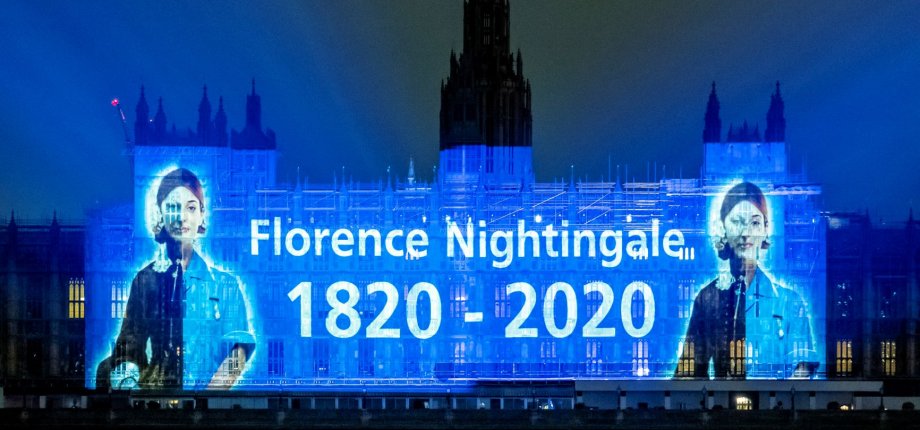Stay in touch with the latest news from AIM and get information on sector grants, jobs and events with our free fortnightly E-News.
Museum Profile – Florence Nightingale Museum

With the high-profile implementation of NHS Nightingale hospitals across the country, it is doubtful whether anyone in the UK has now not heard of the Victorian woman who is arguably the world’s most famous nurse, but did you know there is a Florence Nightingale Museum? The museum is an independent charity, operating as a tenant at St Thomas’ Hospital, on the site of Nightingale’s first nursing school.
The collection of ‘Nightingalia’, approximately 3000 objects, is cared for and interpreted by a team of just ten staff, supplemented by a small but growing number of volunteers. 2020 promised to be a big year for the museum, who have additionally taken on responsibility for co-ordinating global celebrations of the iconic nurse, social-reformer and statistician’s bicentenary, but the COVID19 pandemic has very much changed plans, potentially leaving the museum facing the threat of closure, as core income sources of admissions, school visits and site-based retail have abruptly stopped, with no indication yet of when they may resume. This is certainly unexpected given February 2020 saw the museum’s busiest ever day and a business plan which realistically predicted 65,000 visitors for the year. Indeed, the museum has seen impressive visitor growth since the current management team took charge under three years ago, doubling attendance to 60,000, whilst the museum has also seen success at the 2019 Museum & Heritage awards, taking the titles for ‘Best Temporary Exhibition’ and ‘Best Museum Retail’.
Some would say the pandemic has struck at the most ironic and cruel of times and particularly so given the museum had invested approximately £100,000 in a new exhibition, guidebook and events programme to celebrate ‘Nightingale 200’; this sum complementing a Heritage Fund grant of similar size. This is probably true, but the team are determined not to be wholly pessimistic and be bound by their frustration at seeing so many plans for events now forcibly scrapped. Instead they recognise that the interest in Nightingale can be capitalised upon with a flexible and high-energy approach. Rather than waiting for support the team are instead looking to be creative, whilst lobbying central and local government and the usual grant giving bodies for support.
A donations page has been established on ‘Go Fund Me’ and has already reached £15,000. The museum has worked hard to promote it’s online retail offer and encouraged visitors to ‘buy a ticket’ for future use, recognising the value of cash-flow and people wanting value for money. The team have also been determined to keep media attention as high as possible, securing numerous articles about Nightingale in local, national and international press – a tactic that has recruited celebrity auctioneer Charles Hanson to champion the museum’s survival with a fundraising auction. The museum recognises the value of publicity and raising profile is a priority, the most ambitious way of achieving this so far being via two large projection events on hospitals in London and Rome, and then the Houses of Parliament. These events were secured and produced in a matter of days and will probably never be repeated by a small museum who had to apply the principle of ‘seizing the day’ and expressing the mood of the nation.
The museum recognises the need to try and supplement its very limited reserves with a ‘fighting fund’ and expects to face significant challenges going forward, particularly at a city-based venue that cannot be visited easily without using public transport, and where there may be an added stigma due to entering hospital premises. The museum also recognises that social distancing measures may prove to be challenging to the visitor experience previously enjoyed, where the ‘Family Corner’ and performances by character actors was an integral part of success and customer satisfaction. The museum are therefore contemplating different operating patterns and activities, but in the meantime encouraging engagement with their online exhibition at www.florence-nightingale.co.uk/200exhibits/ and online learning resources at www.florence-nightingale.co.uk/learning-during-lockdown/
David Green, Director, Florence Nightingale Museum
